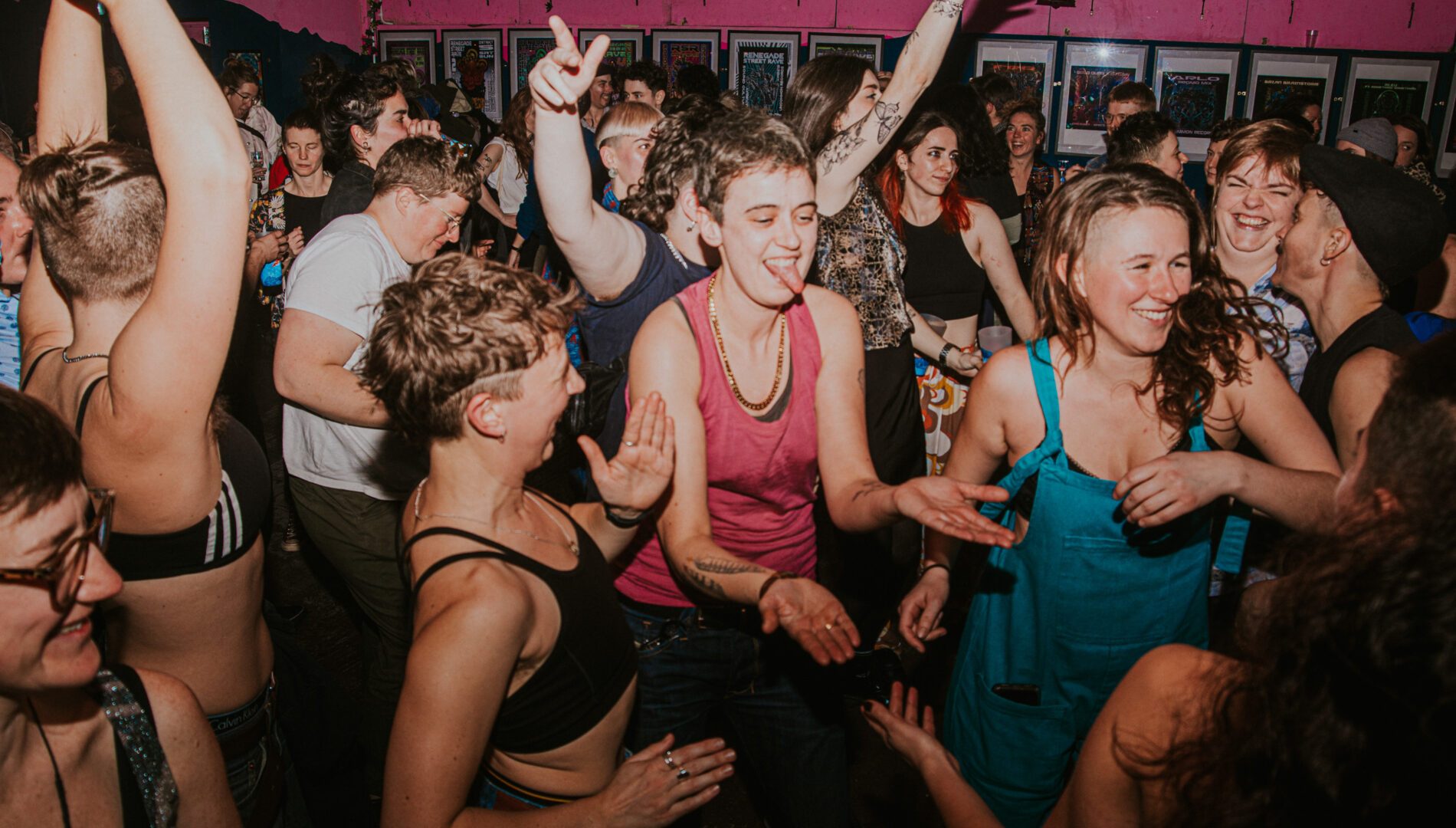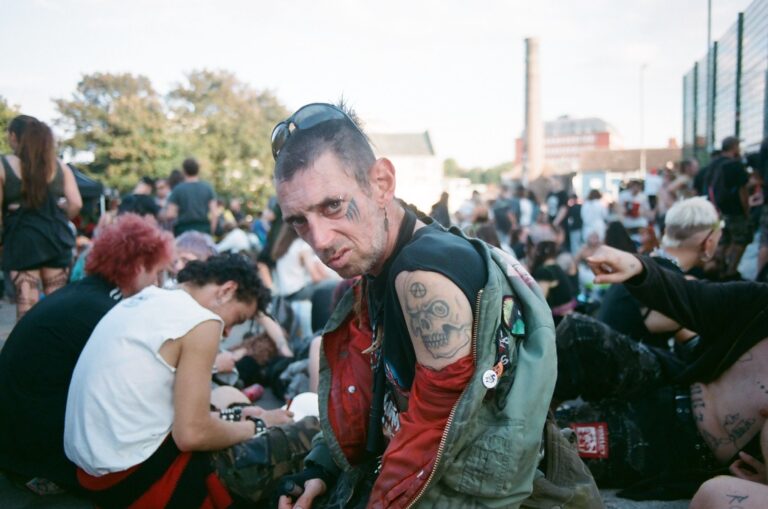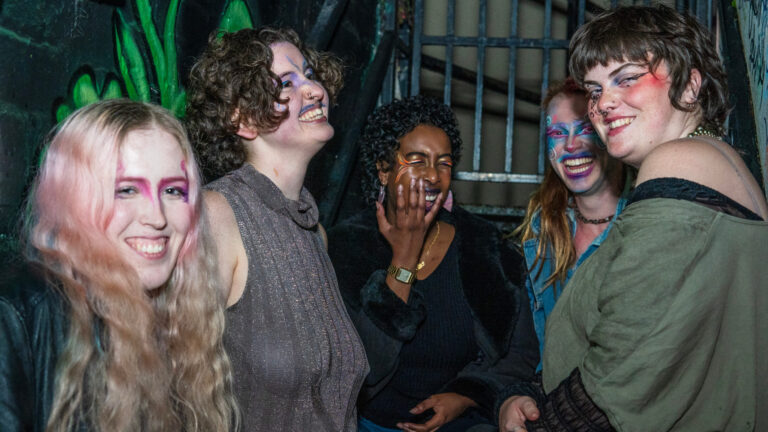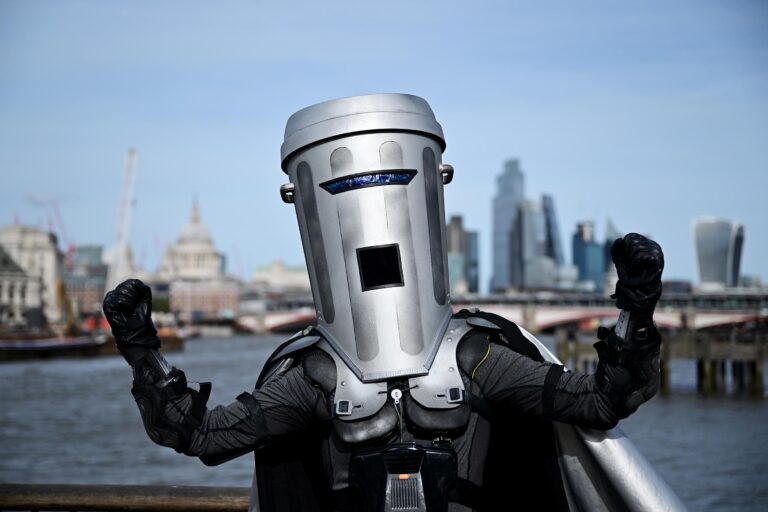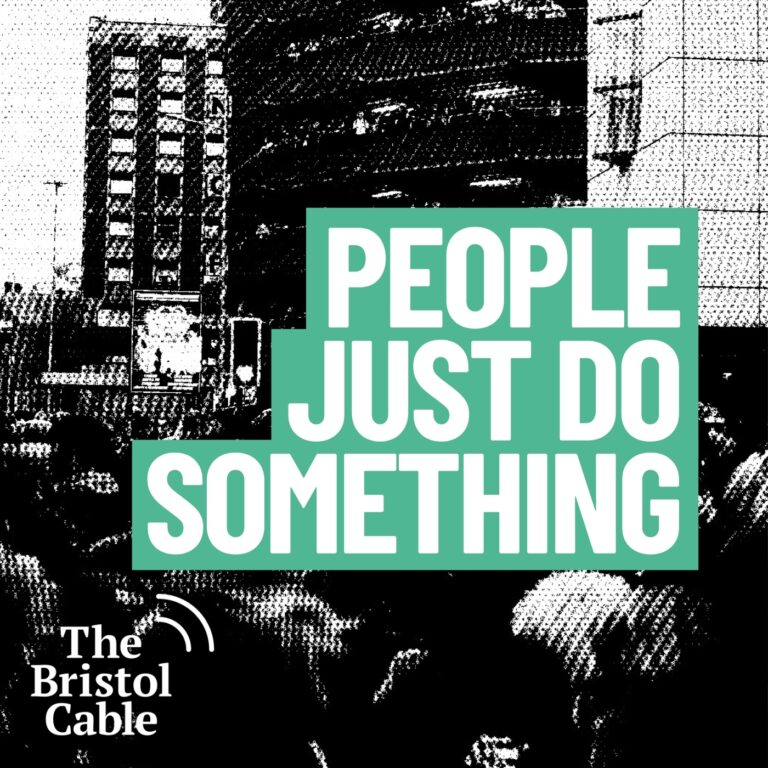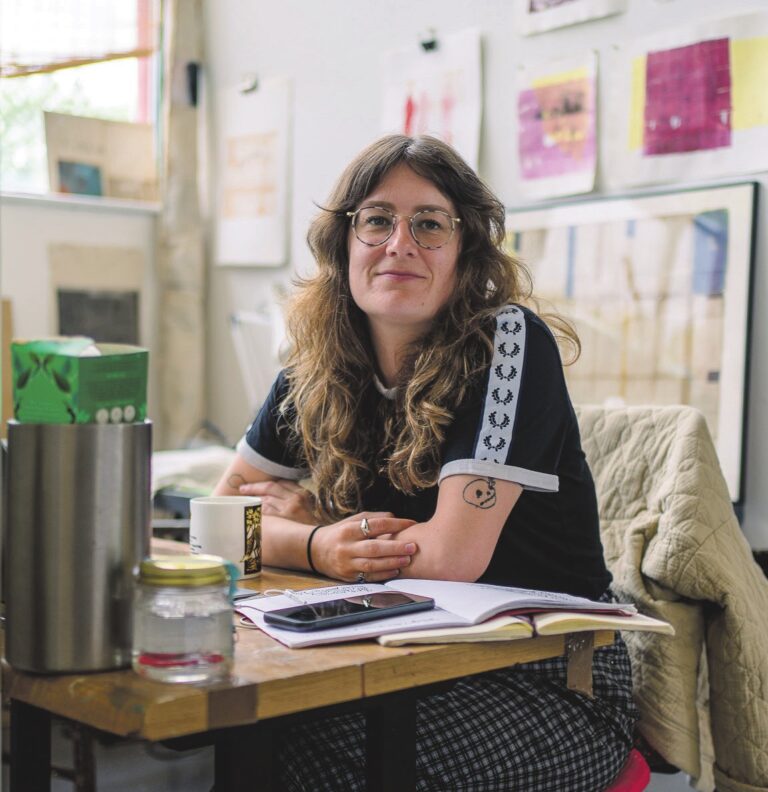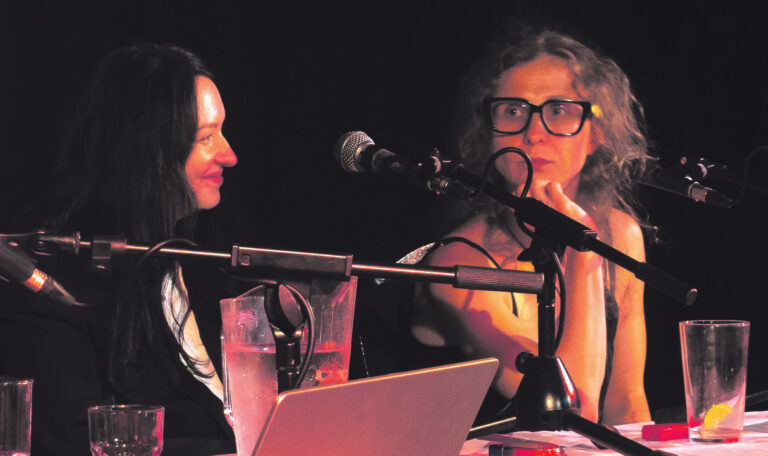I entered Strange Brew on a Wednesday evening in March ready to dance. I’d come for Soft Butch, a night celebrating butchness for women, non-binary and trans people. But to my surprise, I’m met with a room full of people sitting on the floor, eyes closed, meditating.
Leading the meditation was Lexx, founder and host of Soft Butch. Masc-presenting, with cropped hair and a warm, open smile, they gently closed the practice and invited us to the dancefloor.
I wasn’t sure if the vibe shift would work – but soon enough, the room was packed and sweaty, everyone moving joyfully to reggaeton, Afrobeat, dancehall, and drum and bass. The night ended with a debut of Lexx’s new track — also called Soft Butch — which weaves voices telling stories of butchness into the music.
As a queer Bristolian, I left feeling rejuvenated and proud of what my city has to offer.
A DJ and content creator in Bristol, Lexx started the now sell-out night in November 2022 to create the kind of queer event they couldn’t find elsewhere in the city — an intentional space less focused on alcohol.
Soft Butch’s success comes against a dark backdrop: hate crimes against trans people have surged by 186% in the past five years. With 88% of incidents going unreported, the true scale is likely far greater.
Trans rights have become a political football in the so-called culture wars, with toxic, transphobic rhetoric espoused from the political and media class.
On 17 April, the UK’s Supreme Court made a landmark ruling that effectively means trans women are not legally recognised as women. The Equality Act, they ruled, refers only to biological sex. The social implications of this will be profound, a fresh blow to an already embattled community.
In this context, nights like Soft Butch feel not only necessary, but urgent. I sit down with the founder Lexx and members of the community this night has built to reflect on what it means to them.
Centering butchness and trans inclusion
“I wanted to create a space that centres butchness, gender non-conforming, and trans people,” Lexx tells me. “I’m grateful for queer spaces that include cis men, but within the context of patriarchy, it’s also important to have spaces where we can be just amongst ourselves.”
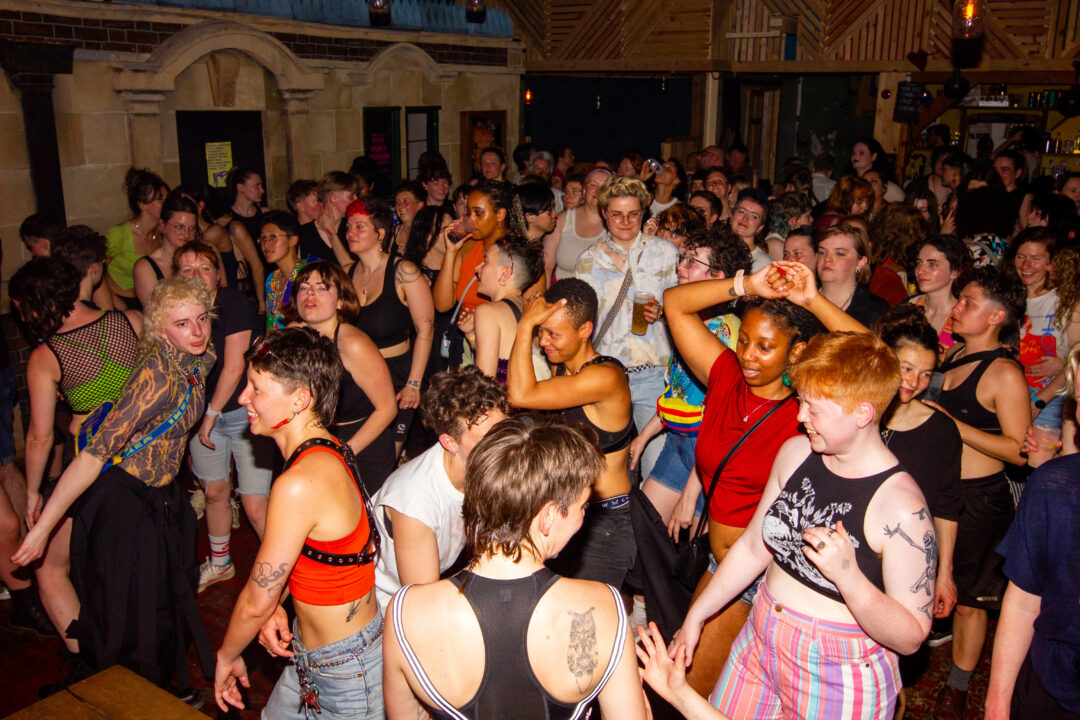
Lexx has experienced physical violence due to their gender presentation. Alongside fear for their physical safety, they also speak about the persistent microaggressions that gender non-conforming and trans people navigate daily: “If the gender you were assigned at birth doesn’t match your actual gender, anything ID-related can lead to invasive questioning — or worse,” they explain.
In this context, Soft Butch offers the chance to exhale. “When I walk into a space filled with butch people, I feel my nervous system relax,” Lexx says. “Like I don’t have to be on guard anymore.”
Embodiment as resistance
That sense of safety allows for something deeper to unfold on the dancefloor: a return to the body. From the outset, Lexx has been deliberate about designing Soft Butch around embodied, intentional practices.
“I wanted to shift the focus away from alcohol and invite us to be present with ourselves,” Lexx explains. “There’s so much pressure on how we express our bodies — alcohol can mask discomfort, but I want us to practise sitting with it, because I believe that’s what will actually allow us to feel truly free.”
Soft Butch therefore begins with a floor meditation. Lexx explains the purpose of this: “So we can remember we have a beautiful body, and connect with the sensations within it,” Lexx says. “That’s what aliveness is.”
“Dancing is an incredible tool to access stress and pain relief,” Lexx adds. “There’s Harvard research on this!” – referring to a study where dance can reduce stress, improve cognitive function, elevate serotonin levels, and even lower the risk of dementia.
“It is so powerful to dance in a room full of queers”
Habibi, an art therapy student and queer Muslim trans performer, is a regular at Soft Butch. “I get so much from Soft Butch, I don’t know what I would do without it,” he tells me. “It is so powerful to dance in a room full of queers. To know that we are all there for each other. It fuels me, and gives me space to feel loved, valued, real, and free to move how I want to move.”
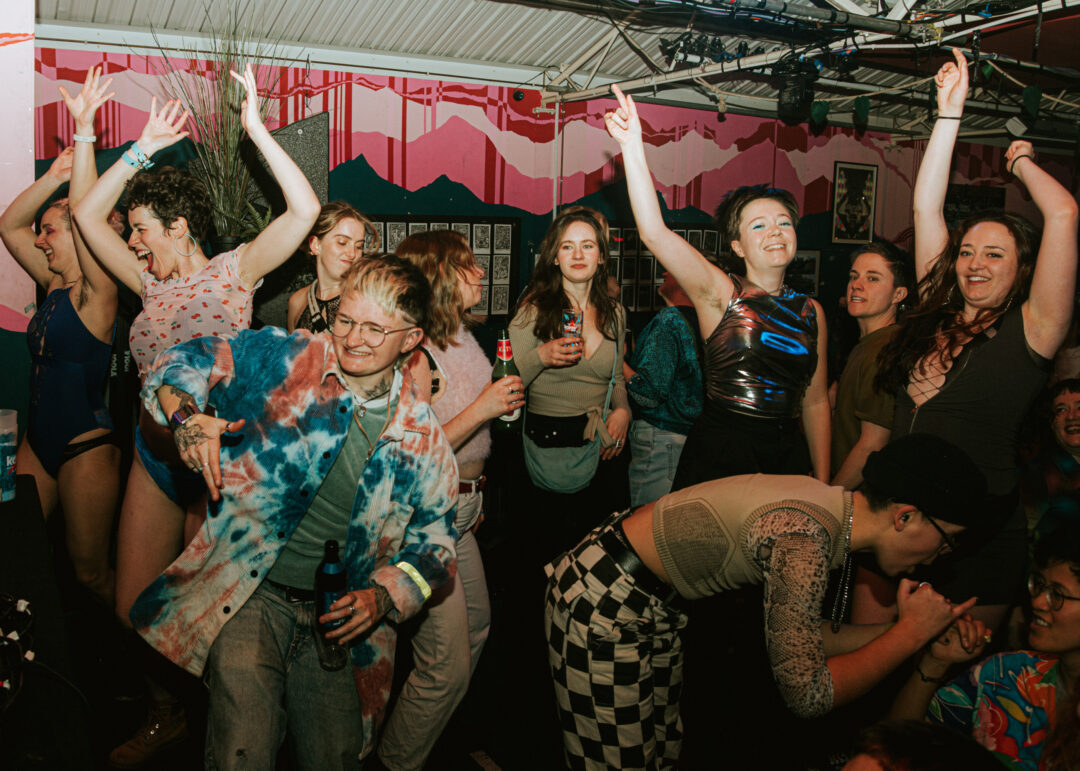
Having been in Bristol for four years, he credits the city’s queer scene with helping him grow into himself. “I don’t think I would have found myself in this way or so quickly without it.”
When I walk into a space filled with butch people, I feel my nervous system relax
Lexx
But for some, that journey has been more complicated. Mads, who is Black, butch, and a mother, has struggled to find spaces where she can fully show up. “In most normative spaces, the way I look visibly agitates people,” she says. “For me to be butch means unequivocally showing up as myself and not apologising for that.”
Even in spaces that celebrate queerness, Mads often feels she must soften parts of her identity. “It’s not that anyone does anything explicit to make me feel unwelcome on account of my Blackness,” she says, “but when I look around a room, if the space is predominantly white, then even if my butchness is embraced, I still have to hold my guard up around my Blackness.”
In predominantly Black spaces, her queerness and butchness aren’t always welcomed either. “I have each foot in two different worlds.” For Mads, true safety means being in spaces that can hold all of her — her queerness, her butchness, her Blackness. Despite the growing visibility of queer events, her experience is a reminder that true inclusivity is still a work in progress.
Creating community
From club nights like PLU, Queerky, and Crotch, to Bristol Butch Bar socials, QPOC community events, House of Boussé’s drag open mic, and activities like queer hiking, swimming, and cycling, Bristol’s queer scene has flourished in both scale and scope in recent years.
By 2011, nights like Fag Club began to shift things. “These events felt more trans-inclusive and counter-cultural in general,” recalls Liv, who’s lived in Bristol for two decades. “They gave a platform to queer artists and brought people together.”
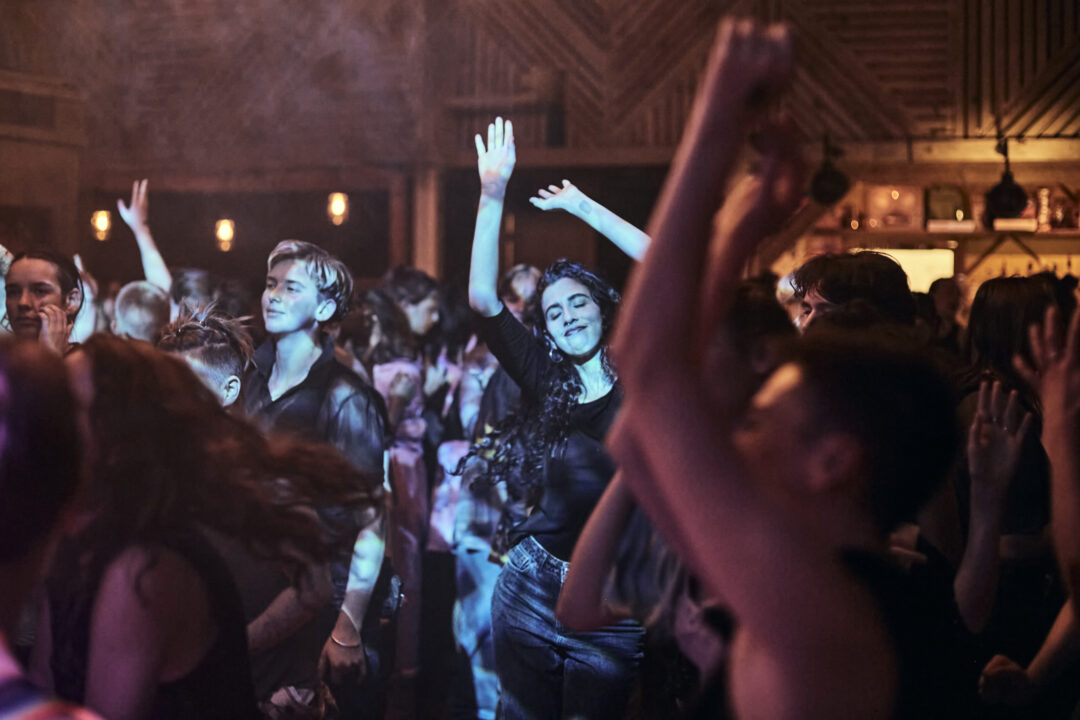
Alice (also known as Pan), a gender-fluid contributor to the Soft Butch track, sees nights like Lexx’s as part of a wider evolution. “I’ve been in Bristol for 15 years and I feel like the scene used to be very gay and lesbian-centred. Soft Butch has opened a can of worms of delicious AFAB [assigned female at birth], non-binary, women and trans folk. I feel that the queer scene has grown massively since I first came to Bristol.”
Lexx reflects on the role Soft Butch has played in this transformation. “I’m humbled by what Soft Butch has grown into as an event and a community. I’m so grateful for those who came before us who paved the way for liberation. As oppressive systems work to divide and conquer, my hope is that we keep on learning, fighting, and sharing joy as resistance — together across queer, global majority, and disabled communities.”
They pause, before offering a final reflection: “Maybe soft butch, a term coined by our butch and femme ancestors, can become a concept that guides us through these times — by reminding us to always embrace both our fierceness and our softness.”
Independent. Investigative. Indispensable.
Investigative journalism strengthens democracy – it’s a necessity, not a luxury.
The Cable is Bristol’s independent, investigative newsroom. Owned and steered by more than 2,500 members, we produce award-winning journalism that digs deep into what’s happening in Bristol.
We are on a mission to become sustainable, and to do that we need more members. Will you help us get there?
Join the Cable today